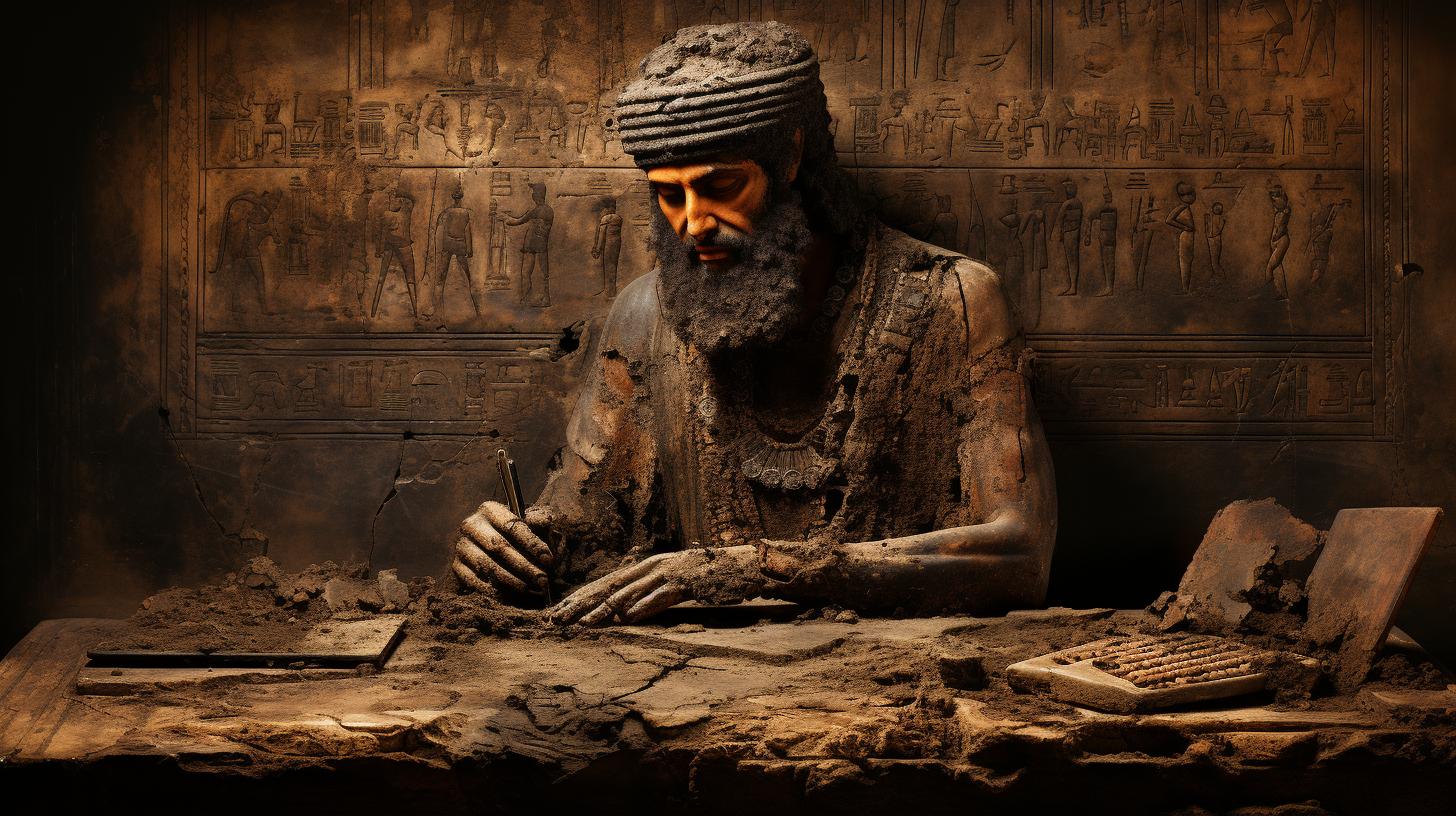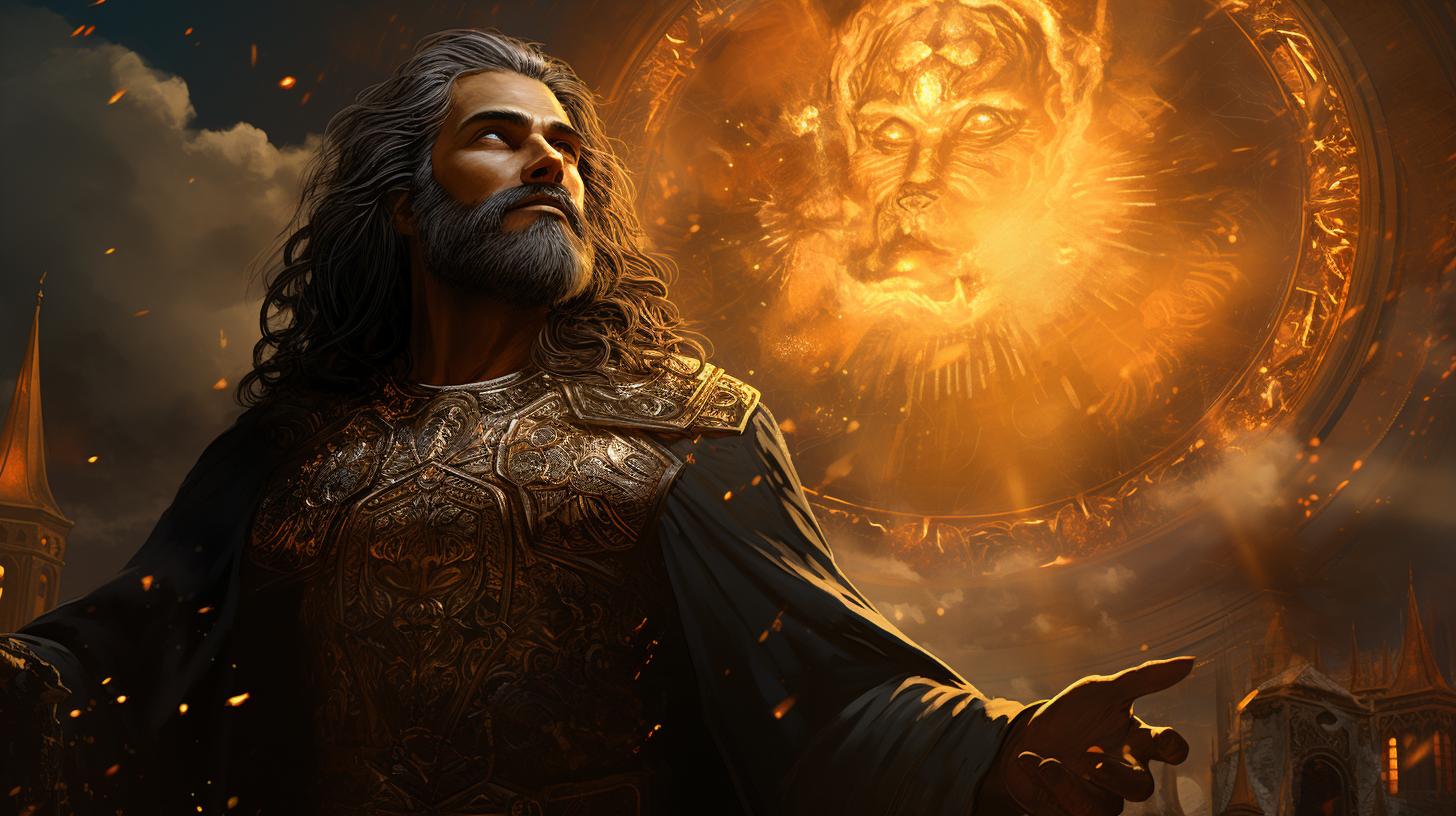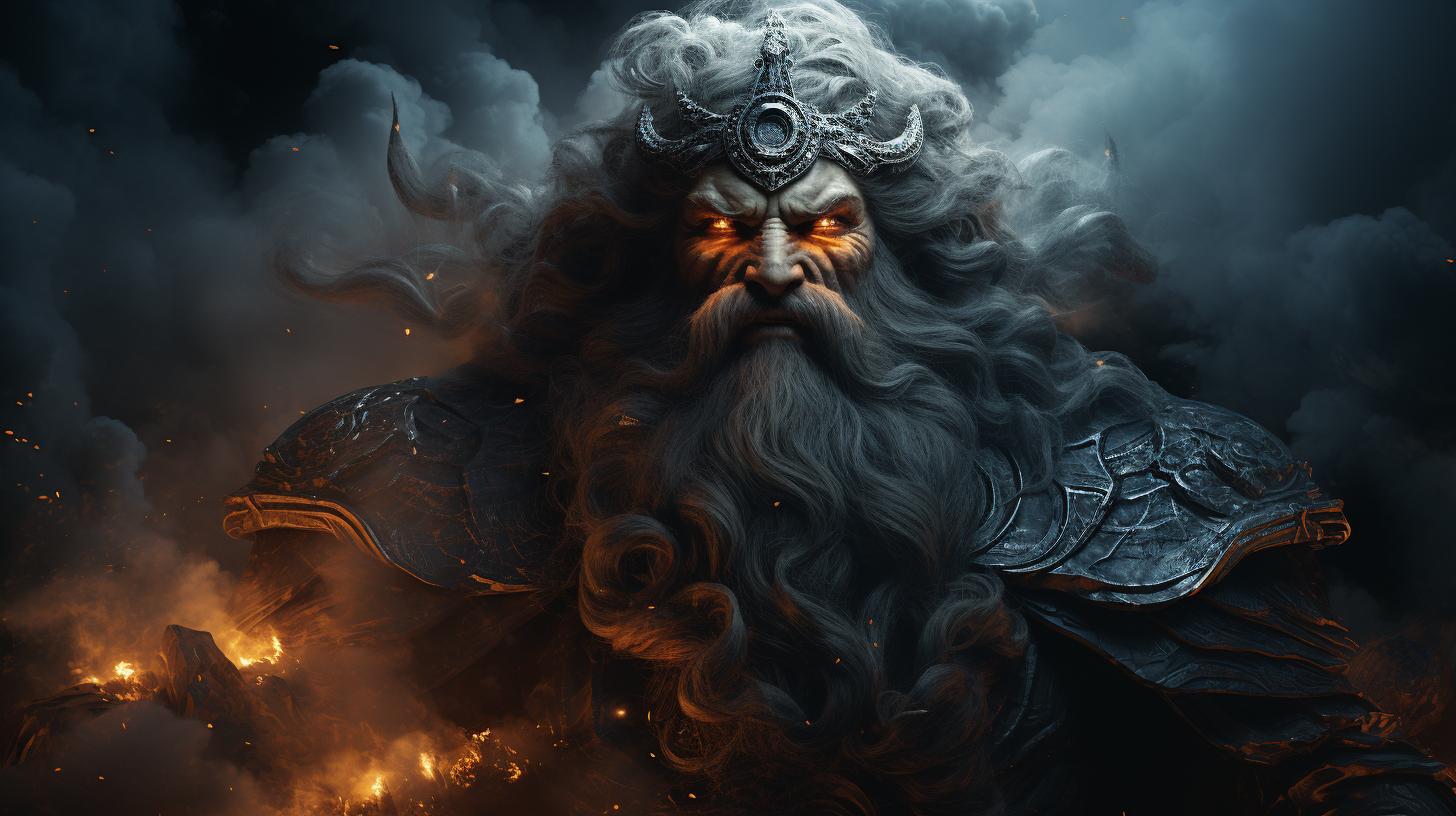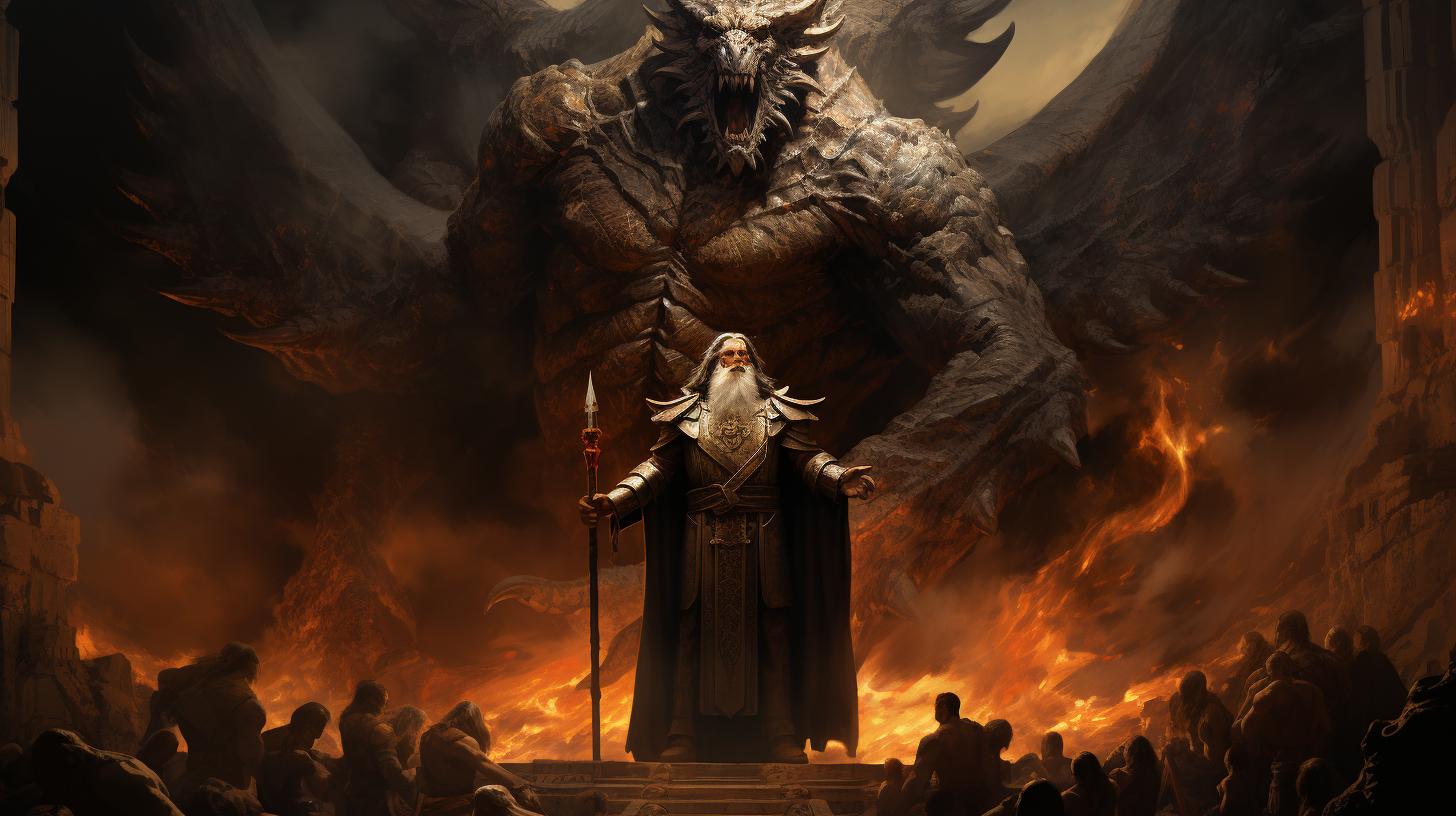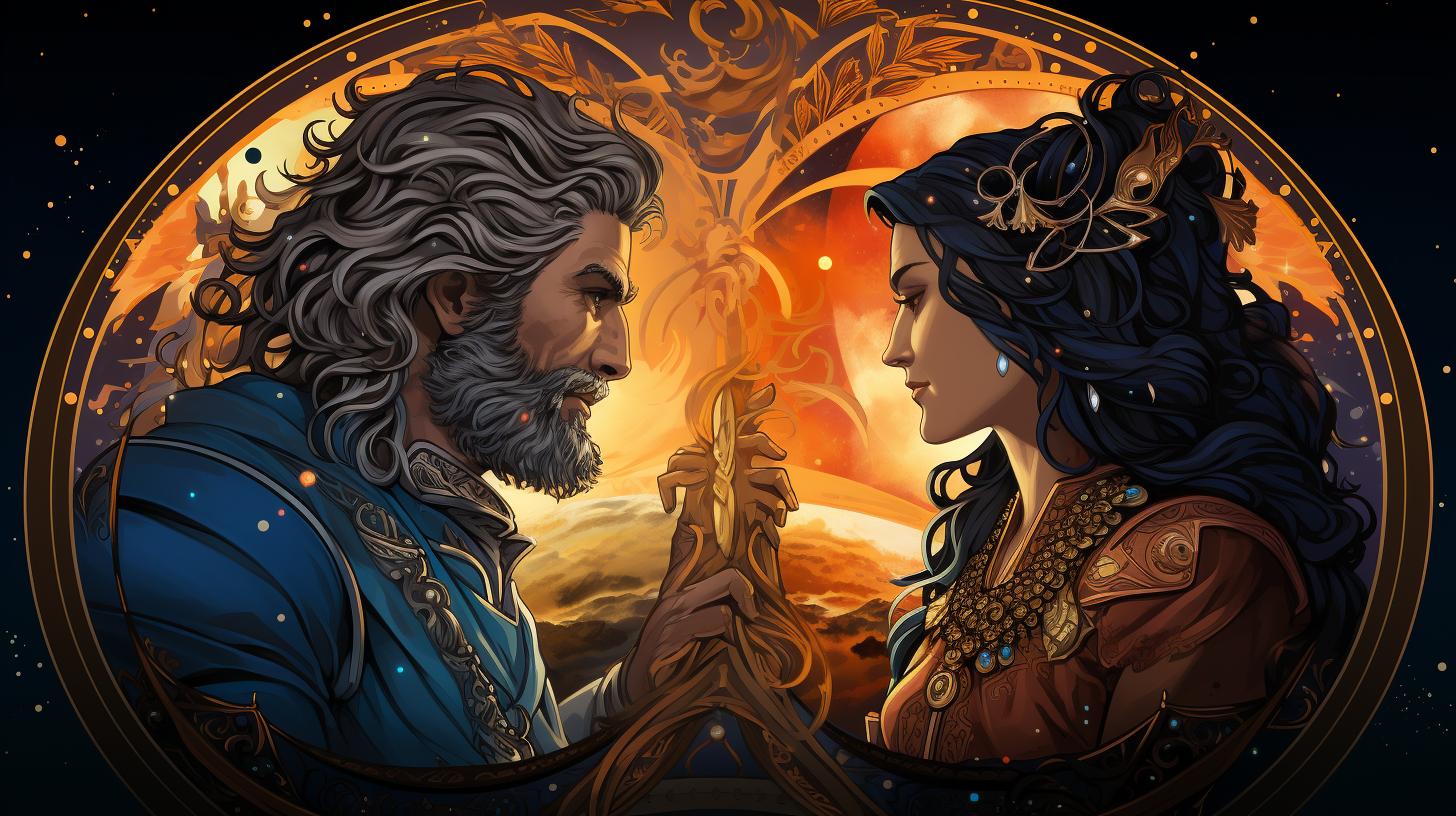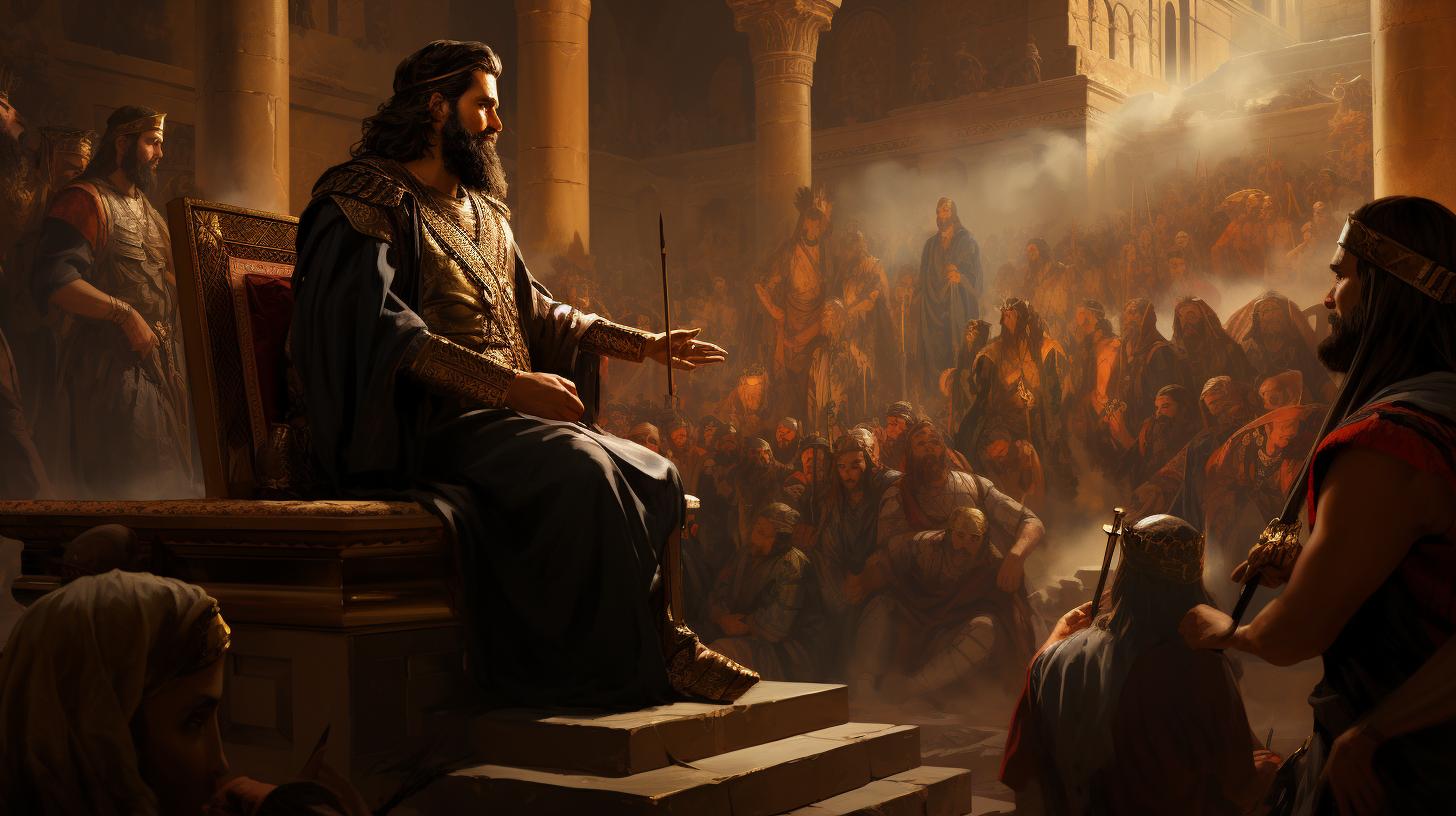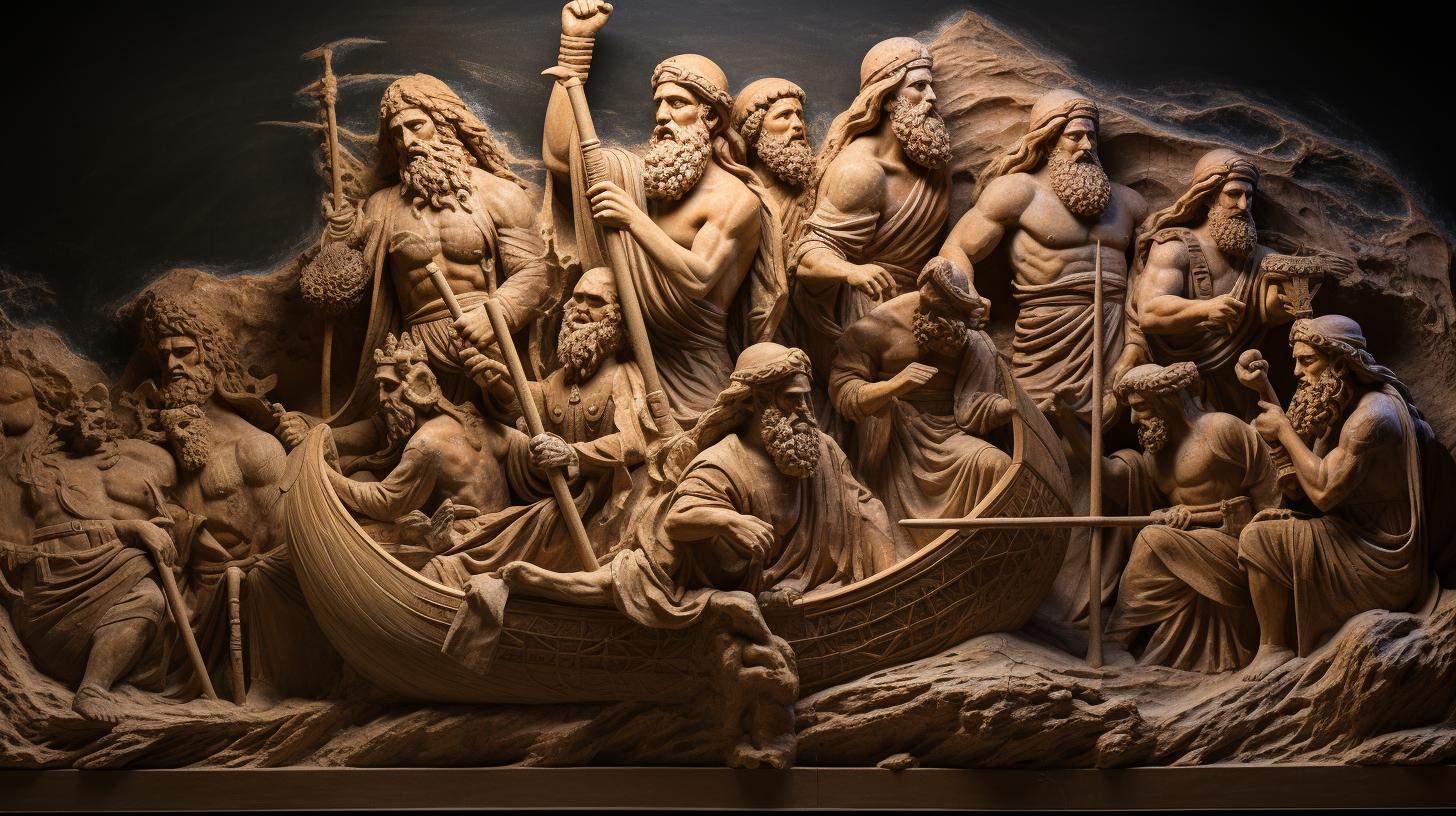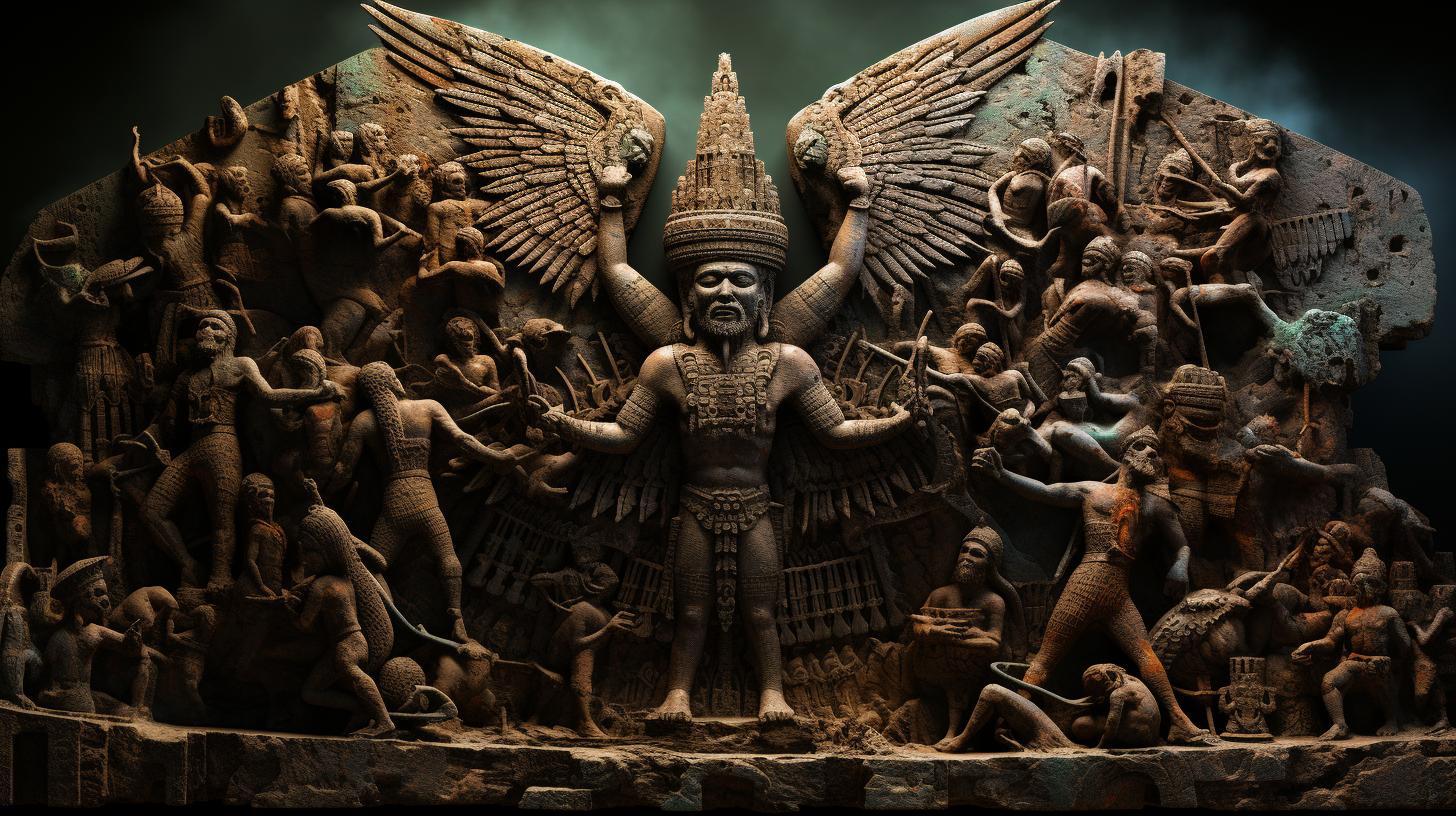Nabu: The Wise God of Ancient Babylon

Nabu, the Babylonian god of wisdom, played a crucial role in their society. As the patron god of scribes, he was revered as the inventor of writing and language.
His temple, Ezida, held great significance in Babylonian religious practices. Nabu’s involvement in the Akitu Festival, alongside his father Marduk, was a highlight of the festivities. He had a close-knit family, with Marduk as his father and Tashmit as his wife.
Nabu’s influence extended beyond Babylon, impacting astrology and the relationships with other deities in the ancient Near East. His legacy left a lasting imprint on Babylonian history and culture, invaluable in other ancient civilizations as well.
The Role of Nabu in Babylonian Society
Nabu, one of the prominent deities in ancient Babylonian religion, held a crucial position as the patron god of scribes. His influence extended beyond his role and encompassed various aspects related to writing and language.
Furthermore, his temple, Ezida, played a vital role in the religious and cultural life of Babylonians.
Nabu as the Patron God of Scribes
Nabu’s association with the realm of writing and knowledge led to his status as the divine patron of scribes. Scribes held a significant position in Babylonian society, as they were responsible for recording and preserving important information, including legal matters, religious rituals, and historical events.
Nabu’s Association with Writing and Language
Nabu’s connection to writing and language was profound, as he was believed to be the inventor of writing itself. The Babylonians valued written knowledge, considering it essential for the functioning of their society.
Nabu’s association with writing elevated him to a position of great reverence and importance among the Babylonian pantheon.
The Importance of Nabu’s Temple – Ezida
Ezida, the temple dedicated to Nabu, held immense significance in Babylonian society. Located in the city of Borsippa, it served as a center for religious and intellectual activities. The temple housed sacred texts and scholarly works, emphasizing the close bond between Nabu, knowledge, and education.
It was a place where scribes and scholars gathered to honor the deity and seek wisdom.
Nabu in Babylonian Festivals
Nabu, the god of wisdom in Babylonian mythology, played a significant role in the vibrant and elaborate festivals celebrated in the ancient city. These festivals served as important occasions for the community to come together, honor the gods, and acknowledge their divine roles in the world.
The Akitu Festival and Nabu’s Role
One of the most prominent festivals in Babylonian culture was the Akitu Festival, a grand celebration held annually to mark the beginning of the new agricultural year. Nabu held a pivotal role in this festival, symbolizing the renewal of knowledge, wisdom, and the cosmic order.
During the Akitu Festival, the people offered prayers and sacrifices to Nabu, seeking his blessings for a prosperous year ahead. The festival included lively processions, music, dance, and dramatic performances, all dedicated to honoring Nabu and his divine influence over the realm of intellect and writing.
Nabu’s Connection with Marduk in Festivities
As the son of Marduk, the supreme deity in the Babylonian pantheon, Nabu shared a special and intimate relationship with his father during festive occasions. Together, they formed a divine duo, representing the harmony between wisdom and power.
During the festivals, Marduk and Nabu would be depicted side by side, highlighting their united authority and significance in Babylonian society. Their joint presence emphasized the interconnectedness of divine knowledge and divine rulership, both essential pillars for a prosperous and prosperous civilization.
The ceremonies held during these festivities showcased the synergy between Marduk and Nabu, highlighting the unwavering support and cooperation between the gods. It was a spectacle that captivated and inspired the people, reaffirming their faith in the divine order upheld by Marduk and the wisdom embodied by Nabu.
Conclusion
The festivals in ancient Babylon were not only vibrant and joyous occasions but also held profound religious and cultural significance. Nabu, as a central figure in the festivities, showcased the paramount importance of wisdom, knowledge, and the written word in Babylonian society.
His collaboration with Marduk during these celebrations reinforced the divine bond between rulership and intellectual prowess. These festivals served as a testament to the enduring legacy of Nabu, shaping the religious and cultural landscape of Babylonian civilization.
The Family of Nabu
Within the pantheon of Babylonian gods, Nabu held a significant place not only as the god of wisdom but also as a member of a divine family. His familial connections heightened his prominence and added depth to his mythological and religious significance.
Nabu’s Father – Marduk, the King of Gods
Nabu’s father was none other than Marduk, the powerful and renowned god who held the esteemed position of the king of gods. Marduk’s sovereignty over the Babylonian pantheon elevated Nabu’s status and emphasized his divine lineage.
As the son of the supreme deity, Nabu inherited immense influence and authority.
Nabu’s Wife – Tashmit
Nabu’s wife was Tashmit, a goddess who played a vital role in Babylonian mythology. Tashmit’s divine union with Nabu symbolized the sacred bond between wisdom and compassion. Together, they embodied intellectual prowess and empathy, forming a union that exemplified the harmonious existence of both traits.
Tashmit’s presence in Nabu’s life further emphasized the importance of balance and unity within the realm of wisdom. As a divine couple, Nabu and Tashmit personified the integration of knowledge and empathy, showcasing the multidimensional nature of their divine powers.
Through his familial connections, Nabu’s significance extended beyond his role as the god of wisdom. The inclusion of his father Marduk and his wife Tashmit added richness to his divine character, further solidifying his place within Babylonian mythology and religion.
Nabu in Ancient Near East
Nabu, the god of wisdom, had a significant influence on Babylonian astrology. In the ancient Near East, he was widely revered for his ability to foretell the future through his association with celestial bodies and interpretations of omens.
Babylonian astrologers heavily relied on Nabu’s guidance to make predictions and offer advice to rulers and individuals alike. His deep knowledge of the stars and their movements bestowed his worshippers with a sense of security and insight into their destinies.
Nabu’s Influence on Babylonian Astrology
Nabu’s role in Babylonian astrology extended beyond mere divination. He imparted his wisdom to the priests and scholars who meticulously studied celestial patterns, looking for correlations between heavenly occurrences and human affairs.
These astrologers firmly believed that Nabu’s teachings and interpretations offered a glimpse into the will of the gods and allowed them to navigate various aspects of life, such as agriculture, politics, and warfare.
Nabu’s Relation to Other Deities in the Region
In addition to his influence on Babylonian astrology, Nabu held significant connections to other deities in the ancient Near East. He served as a mediator between Marduk, the supreme deity of Babylon, and other gods across the region.
Nabu’s widespread worship and reverence positioned him as an intermediary between mortals and the divine, allowing individuals to communicate their desires and seek divine blessings through him. This elevated status further solidified his importance in the religious and mythological landscape of the ancient Near East.
Overall, Nabu’s presence in the ancient Near East, particularly with his impact on Babylonian astrology and his role as a revered intermediary, showcases his enduring significance in the region’s mythological and religious traditions.
His contributions to ancient knowledge and wisdom continue to fascinate and inspire to this day.
The Legacy of Nabu
The impact of Nabu, the god of wisdom and writing, on Babylonian history and culture cannot be overstated. His influence reached far beyond his role as the patron god of scribes and the inventor of writing.
In this section, we will explore the enduring legacy of Nabu in Babylonian society and his presence in other ancient civilizations.
Nabu’s Influence on Babylonian History and Culture
Nabu’s association with writing and language played a pivotal role in shaping Babylonian history and culture. The development of writing systems allowed for the recording and preservation of knowledge, leading to advancements in various fields such as law, science, and literature.
With his temple, Ezida, serving as a hub of scholarly activity, Nabu became a source of inspiration and guidance for aspiring scribes and intellectuals.
Moreover, Nabu’s influence extended beyond the intellectual realm.
As the son of Marduk, the king of gods, he held a prominent position within the Babylonian pantheon. His presence in religious rituals and festivals, particularly the grand Akitu Festival, reaffirmed his status as a revered and powerful deity.
The celebration of Nabu during these festivities emphasized his importance in the religious and cultural fabric of Babylonian society.
Nabu in Other Ancient Civilizations
The impact of Nabu’s wisdom extended beyond Babylon, as his cult spread to neighboring regions and ancient civilizations. His association with writing and knowledge made him a revered figure among scholars and intellectuals in the ancient Near East.
Babylonian astrology, which Nabu greatly influenced, found its way into other cultures, shaping their understanding of the celestial bodies and their significance.
Nabu’s presence can be observed in various forms across different civilizations.
In Assyria, he was known as “Nabu-aplu-iddina,” and his temples and rituals were adapted to fit their religious practices. The influence of Nabu can also be seen in Persian and Hittite cultures, where scribes and scholars sought his guidance and protection.
Nabu, the god of wisdom, left an indelible mark on Babylonian history and beyond. His role as the patron god of scribes, his association with writing and language, and his influence on festivals and religious practices established his enduring legacy.
From Babylon to neighboring civilizations, Nabu’s wisdom and divine guidance resonated with generations of scholars, leaving an intellectual and cultural heritage that continues to be appreciated and studied even in contemporary times.

